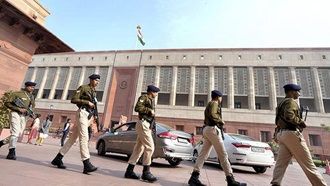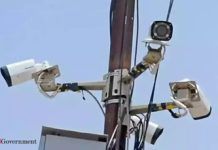Around 400 Central Industrial Security Force (CISF) personnel have been deployed in the past four months at the Parliament complex where a security breach took place in December last year, though an official order is awaited, a senior government official said.
The new Parliament building was inaugurated on May 28, 2023, and was first used for official business. On December 13, two men carrying colour spraying canisters had jumped into the Lok Sabha chamber during Zero Hour from the visitors’ gallery in protest against the rising unemployment, the unending ethnic violence in Manipur and farmers’ issues. In all, six persons have been arrested and booked under various sections, including terror charges. The police are yet to file a chargesheet in the case. After the security breach, eight Delhi Police security personnel who were responsible for frisking and baggage scanning were suspended.
On Monday, around 150 Delhi Police personnel were withdrawn following the CISF’s deployment, the official said. A small unit of Delhi Police of around 75 personnel will, however, be retained for VIP duty, said another official.
The CISF is also likely to replace the Parliament Security Service (PSS) that functions under the Lok Sabha Speaker and has various responsibilities such as issuance and scanning of passes of visitors and officials inside the Parliament building. The official said that the orders could not be signed yet due to the Model Code of Conduct in place for the Lok Sabha election. Speaker Om Birla is contesting from the Kota Bundi Lok Sabha seat in Rajasthan where polls were concluded on April 26.
In the latest deployment, CISF personnel were stationed to train with PSS officials at several spots in the Parliament complex. In all, around 3,000 CISF officials are expected to be deployed.
The exercise has taken place in phases since January. The personnel have been deployed in additional areas such as the reception and offices located inside the old Parliament building or the Samvidhan Sadan. Access control such as frisking and baggage scanners are also being secured by the CISF now.
On December 20 last year, the Union Ministry of Home Affairs had accorded in-principle approval to the CISF to survey the Parliament premises and its buildings for regular deployment of personnel (both Security Wing and Fire Wing) on a comprehensive pattern under the Government Building Security. An official said that fire tenders belonging to the Delhi Fire Service at the Parliament building had also been replaced with that of the CISF’s fire tenders.








